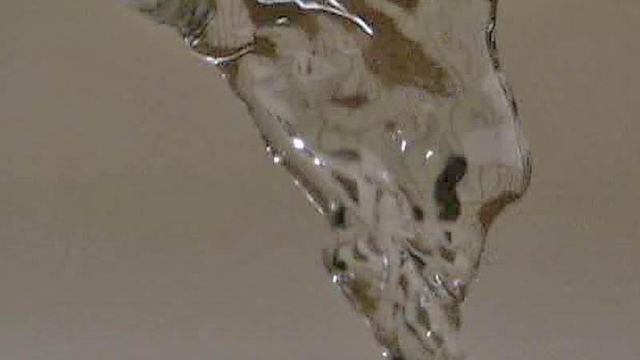Reused Water, Plumbing Tips Help Trim Consumption
Raleigh's Public Utilities Department on Monday will begin offering treated wastewater to area residents for outdoor irrigation as a way to help people conserve water during the drought.
Posted — UpdatedGov. Mike Easley on Thursday asked everyone in North Carolina to cut their water consumption by 20 percent as the drought conditions continue to worsen statewide.
Ed Buchan, a water conservation specialist with Raleigh's Public Utilities Department, said the easiest way to cut consumption is by turning off sprinklers.
"If you're looking at the average household, if you do use irrigation outside, typically the easiest way to reduce your water bill is reduce the amount for irrigating. That will be the biggest impact," Buchan said.
The so-called "bulk reuse water" will be available at Raleigh's Neuse River Wastewater Treatment Plant, at 8500 Battle Bridge Road. Reuse water is wastewater that has been treated to meet certain standards, but it isn't intended for human consumption.
The treatment plant generates about 45 million gallons of reuse water daily, and officials said people can haul off as much of the free water as they want for outdoor irrigation. But people must undergo training from the city, and their trucks need to be inspected before they can take any water, officials said.
Training classes and inspections will be conducted at 8 a.m. Wednesdays at the treatment plant. Classes must be scheduled at least two days in advance, officials said.
Aside from lawn watering, experts said other tweaks could save plenty of water each day.
An average household uses 350 gallons of water each day, and most of that goes down the drain.
Almost 27 percent of the water used inside the home flushes toilets. Lowering the float in the tank or putting something in the toilet tank to reduce the amount of water it holds will help save water.
Washing clothes accounts for 22 percent of daily water use in homes. Running the washer only with full loads also will save water.
Showering uses 17 percent of water daily, and faucets account for another 16 percent, according to experts.
Water lost through leaks accounts for almost 14 percent of daily use. Fixing dripping faucets and pipes will make a big dent in meeting the 20 percent conservation goal.
• Credits
Copyright 2024 by Capitol Broadcasting Company. All rights reserved. This material may not be published, broadcast, rewritten or redistributed.





